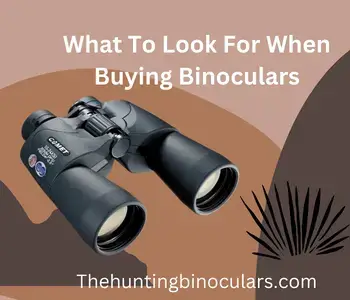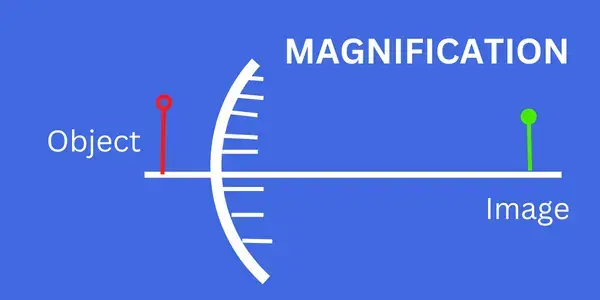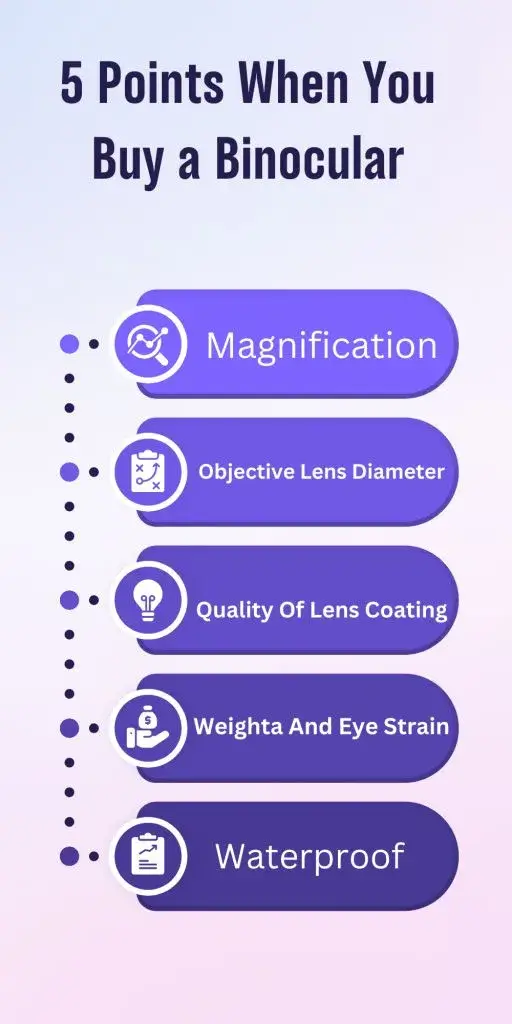
There was once a time when I couldn’t even spell out binoculars let alone know anything about them. Fifteen years later they have become a vital appendage of my body. So, how did I go from an ignorant child to a binocular expert? One word: Birds. Fascinating creatures aren’t they? There are so many types of birds in the world that normal people never get to know about because they are found in the wild or fly too high to be seen with the naked eye. And that is where the binoculars come in. In fact, they are the single most essential tool for all bird gazers such as myself.
Now the question is, what to look for when buying binoculars when there are so many different options available in the market? You definitely don’t want to end up with the wrong binoculars considering how expensive they are in the first place. So, today I am going to address this problem for you all. I will provide you with a list of some of the features that you must look out for in every binocular you want to purchase. Honestly, in my opinion, no binocular is good enough if it does not have these qualities. So, let’s dig in and find out what these fabulous traits are!
Table of Contents
What To Look For When Buying Binoculars 5 Things To Know
There are a lot of factors to keep in mind when you buy binoculars, but these mentioned five points are must-have binoculars.
1. Magnification
So, the question is what do binoculars do? The answer would be they magnify things so that they become big enough to be seen with the naked human eye. I guess you can tell where I am headed with this. You must all check out the magnification of a pair of binoculars before you purchase them. The good news is that every binocular has the magnification number written legibly in x times. The number will show how many times the binocular lenses will magnify things for you. For bird gazing, the most ideal magnification number for regular use is between 7x and 12x.

2. Objective Lens Diameter
The object lens is what we call the lens at the rear end of the binoculars. The size of these lenses determines the quality of the magnified images you see through the binoculars. The bigger the diameter of the objective lens, the clearer images you will be able to see. So, the lens diameter of 8×40 is the best in my opinion if you want a binocular for regular use.
3. The Quality Of Lens Coating
The quality of the lens coating is also a very vital thing to consider. This is because a high-quality lens coating will inhibit reflection and allow more light to enter the binoculars. This will in turn lead to a clearer and sharper image. It also prevents color distortion, especially in low-light conditions.
4. Weight And Eye Strain
You must also consider the weight of the binoculars. Since you will be using your binoculars for most of the time in bird gazing, you might as well get your hands on the lightest binoculars possible. Who knows you might miss a herd of exotic birds just because you were taking a breather from carrying those heavy binoculars all day long. The prospect is not very exciting, right? Of course not, so you’d better find yourselves a super lightweight set. Apart from that, eye strain is also a huge part of binoculars. However, good quality lenses tend not to wear your eyes out.
5. Waterproof
What good would a pair of binoculars be if they can’t be used during the rainfall, right? I mean most of the time you will be up in the mountains or jungles looking for rare animals and birds. And in such places, weather conditions can never be predicted accurately. So, you might as well equip yourselves with waterproof binoculars to go about in any season with you. Trust me, once you lose yourself in nature, worrying about the safety of your binoculars would be the least of your concerns.
6. Price Range
Binoculars’ price range is subject to significant variation, which largely depends on their quality, characteristics, and the brand’s reputation. One may find budget-friendly binoculars under $50, while the mid-range category usually comprises binoculars with prices between $50 and $200.
In contrast, high-end binoculars may cost above $1000 and more. Nonetheless, choosing binoculars that cater to one’s specific needs and being mindful of their budget is crucial. Opting for binoculars with advanced features and exceptional optics can result in a more expensive price tag. Nonetheless, one can still find affordable alternatives that fit a tight budget.

FAQs
What Strength Of Binoculars Is Best?
If you ask me, I would say that binoculars with a magnification ranging between 8 to 10 x are the best. This is because the higher the magnification of a binocular the more difficult it becomes to handle it without a tripod stand. Besides, this is the perfect strength for regular use and shows the image all sharp and clear. Plus, they won’t put too much strain on your eyes so it is the perfect choice for you.
How Much Is A Good Pair Of Binoculars?
On average, you can get binoculars ranging from a hundred bucks to over two thousand bucks. It all depends upon your budget constraints, your skill level, and the intended use. You can make do with a binocular worth under five hundred dollars if you want it just for the sake of fulfilling your hobby. But if you want to go all professional then you should get a high-end professional set of binoculars.
Final Thoughts
So, this was all from my side. I hope you were able to benefit from all this information I provided. You could add a few things to the list I provided but you are advised to not cut out any feature enlisted because these were some of the most basic features that every binocular must have. As I mentioned earlier, any binocular that does not have all these qualities is not worth the price you would be required to pay for it. Besides, why would you want to invest all that money in a bad set if you could possibly get a perfectly good one if only you were willing to sieve the market for it?
